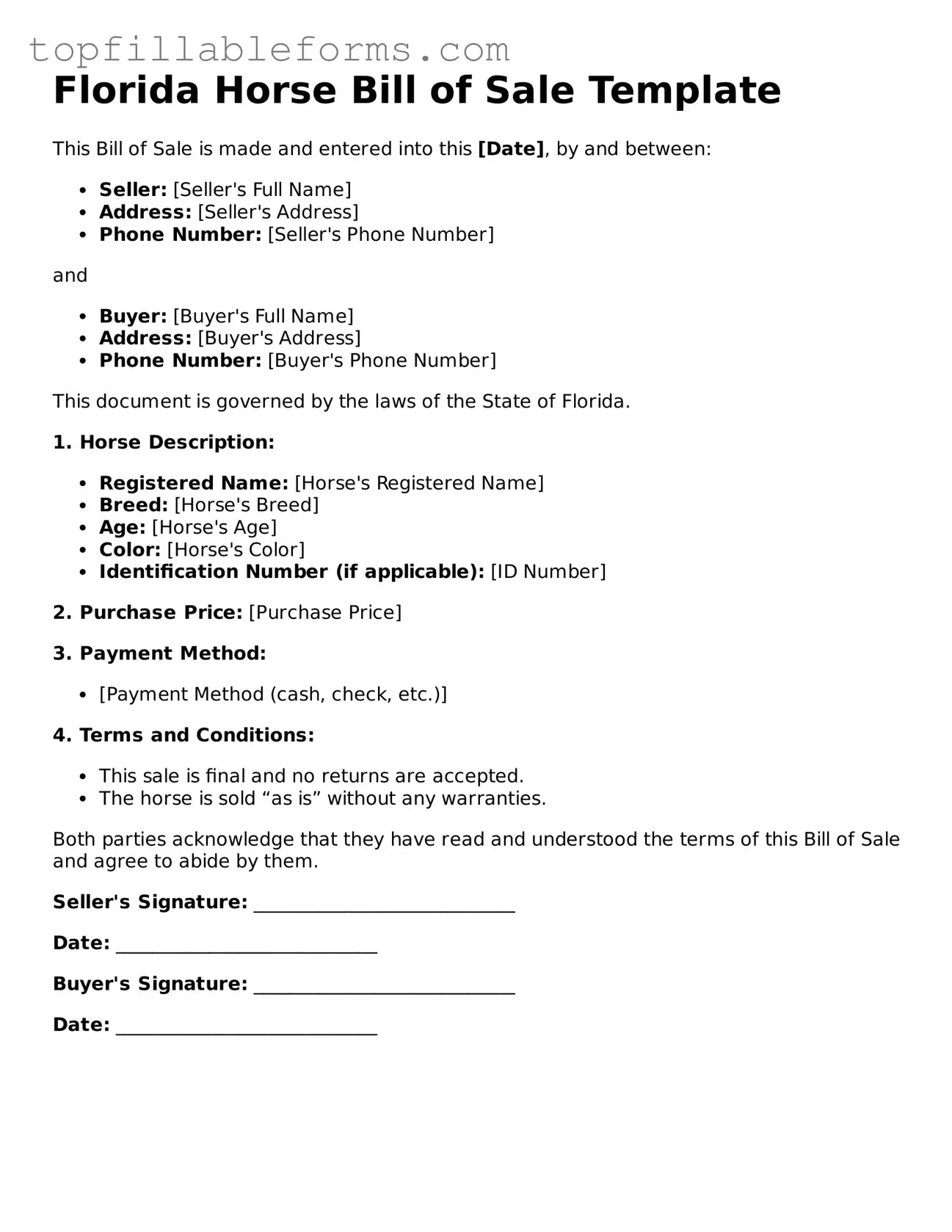Attorney-Verified Horse Bill of Sale Template for Florida
The Florida Horse Bill of Sale form is a legal document that records the transfer of ownership of a horse from one party to another. This form serves as proof of the transaction and outlines the details of the sale, ensuring both the buyer and seller are protected. Understanding this form is essential for anyone involved in equine transactions in Florida.
Open Horse Bill of Sale Editor Here

Attorney-Verified Horse Bill of Sale Template for Florida
Open Horse Bill of Sale Editor Here
Finish the form now and be done
Finish your Horse Bill of Sale online by editing, saving, and downloading fast.
Open Horse Bill of Sale Editor Here
or
▼ PDF File
